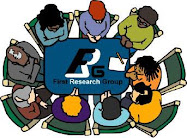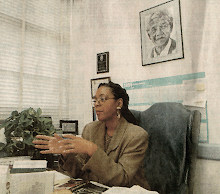Monday, August 8, 2011
July 2011 Poster Presentation
Friday, February 12, 2010
Gender and Lifestyle (GALS) Study

In collaboration with researchers at the University of North Carolina at Chapel Hill, Gratia Wright conducted a series of focus groups to understand motivations and barriers to physical activity in African American and Caucasian women at risk for developing diabetes. This would help inform the development of practice based intervention to increase physical activity.
Participants revealed that they would like physicians to be specific when recommending an increase of physical activity. Additionally, focus group participants stated that physical activity programs or endeavors need to be viewed as being fun and convenient. For more information, on this and/or other research activities, please contact Ms. Wright directly.
To view a Power Point presentation of the study, please click on the link above.
Tuesday, January 5, 2010
Communication, Decision Making, and Cancer: What African Americans Want Physicians to Know

In collaboration with researchers at UNC-Chapel Hill, Gratia Wright facilitated a series of focus groups on Communication, Decision and Cancer among African American participants. A link to an article published in late 2008, is shown at the end of the following Abstract.

Abstract
Purpose: To explore and identify communication and decision making with health care providers for African Americans living with cancer and for their families.
Methods: We used focus group interviews to identify and explore cultural perceptions, expectations, and desires as they relate to quality of life domains.
Participants: Of the 42 African American participants, 33 were women. Half of the participants (n = 21) were caregivers of a family member with cancer; the others were cancer survivors and some of them had also cared for a loved one with cancer.
Results: Participants focused on effective communication and decision making as fundamental to overall quality of life. Furthermore, physicians were viewed as having the responsibility to establish and monitor effective communication with patients and families. Within the domain of effective communication, participants stressed that health care providers needed to know the person and family and to tailor communication with them based on that knowledge. Within the domain of decision making, participants emphasized having a sense of control over treatment choices. They also expressed concerns for populations made vulnerable by advanced age, poverty, or low levels of formal education.
Discussion: Our participants indicated that relationship-centered care, in which one's sense of personhood is sought, acknowledged, and worked with, is foundational for effective communication and decision making.
1: Williams SW, Hanson LC, Boyd C, Green M, Goldmon M, Wright G, Corbie-Smith G.
Communication, decision making, and cancer: what African Americans want
physicians to know. J Palliat Med. 2008 Nov;11(9):1221-6. PubMed PMID: 19021485.




